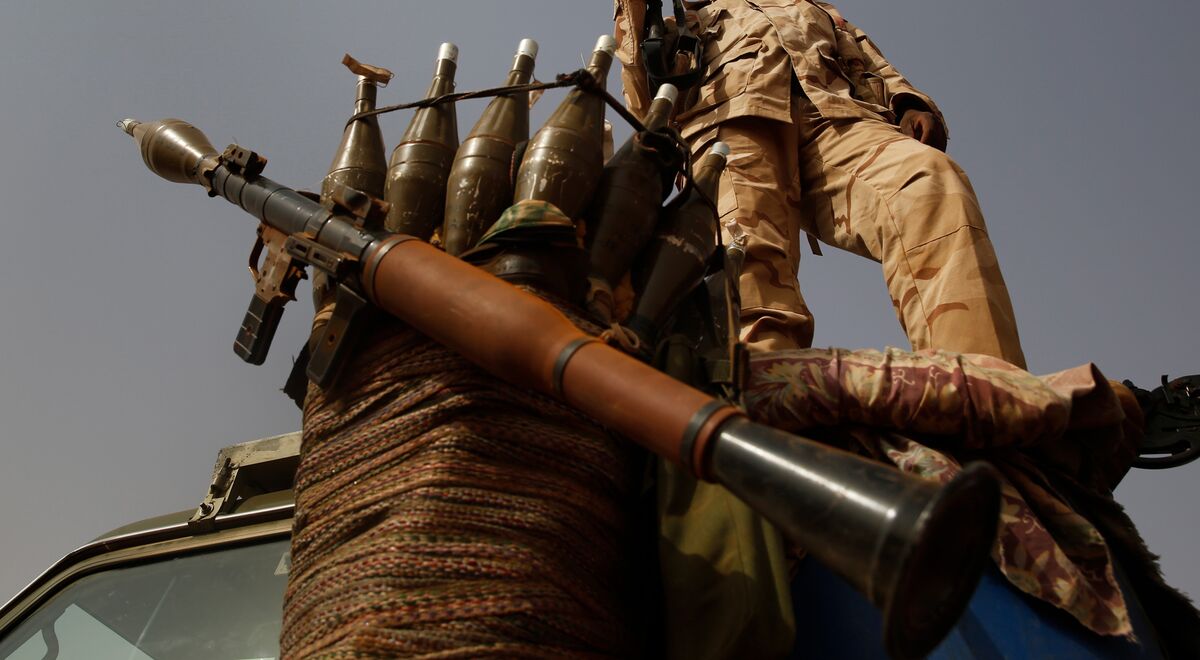Ethiopia has accused Sudanese troops of killing “many civilians” in recent clashes over contested land on the border of nations.
Tensions between the two countries have increased since the conflict broke out in the Tigray region of northern Ethiopia on 4 November, with several deadly clashes taking place on fertile farmland in the border area of al-Fashqa. The dispute risks attracting a third nation to a regional conflict that has already involved troops from neighboring Eritrea.
Ethiopian officials watched Sudanese military forces carry out organized attacks using heavy machine guns and armored convoys on its border, Dina Mufti, a spokeswoman for the Ethiopian Foreign Ministry, told reporters on Tuesday. Ethiopian farmers in the region had their properties looted, while “many civilians were murdered and injured,” he said.
Sudanese Foreign Minister Omar Qamar al-Din did not respond to requests for comment and calls to the North African country’s Ministry of Information and the Sudanese army was left unanswered.
Al-Din said last week that the Sudanese army has taken control of most of the disputed land in the al-Fashqa area. He downplayed the prospect of escalating the conflict, saying the government will use diplomatic channels to resolve the dispute.
Both sides met last month to discuss the border issue, but have made no progress.
Amhara Militia
Foreign diplomats and Sudanese officials who have followed the talks said that while Sudanese troops moved to the al-Fashqa area after federal Ethiopian troops left to help with the conflict in Tigray, large groups of Amhara militia members mobilized in the area. .
The state of Amhara, whose fighters supported the Ethiopian federal army’s incursion into Tigray, claims ownership of parts of al-Fashqa, including areas that are within Sudanese territory.
Amhara militias are “asserting renewed aggression on the border that could result in further provocation,” said Cameron Hudson, a senior member of the Atlantic Council’s Africa Center. “If not verified, it represents the type of ‘low probability and high impact’ scenario that can have devastating and far-reaching consequences.”
Sudan says the border area around al-Fashqa has been demarcated under colonial-era treaties dating back to 1902, placing the land firmly within its international borders. Khartoum historically allowed Amhara farmers to conduct business and live on fertile land, as long as they paid taxes and operated under Sudanese laws and, in turn, Ethiopia recognized the land as Sudanese.
Foreign fighters
The Sudanese border has already been destabilized by the fighting in Tigray. The UN said on Tuesday that many refugees continue to arrive in Sudan because of persistent violence in the area.
“About 800 people crossed the Tigray region in Ethiopia to eastern Sudan just in the first days of the new year,” said Andrej Mahecic, a spokesman for the UN refugee agency in Geneva. “The latest arrivals say they were caught in the conflict and the victims of several armed groups.”
Despite previous denials, Ethiopian authorities have begun to admit the presence of Eritrean troops within Tigray. Speaking about Tigray’s regional broadcaster, which is now effectively controlled by Abiy’s administration, Major General Belay Seyoum of the Ethiopian army said last week that Eritrean troops entered Ethiopia “uninvited” while federal forces were under attack by Tigray’s troops.
“We to feel bad it had to happen, ”he said. “We can solve our internal problems alone. We are able to do that. “
– With the help of Samuel Gebre
(Updates with comments from the UN and Ethiopian authorities in the second paragraph after the subtitle Foreign Fighters)
